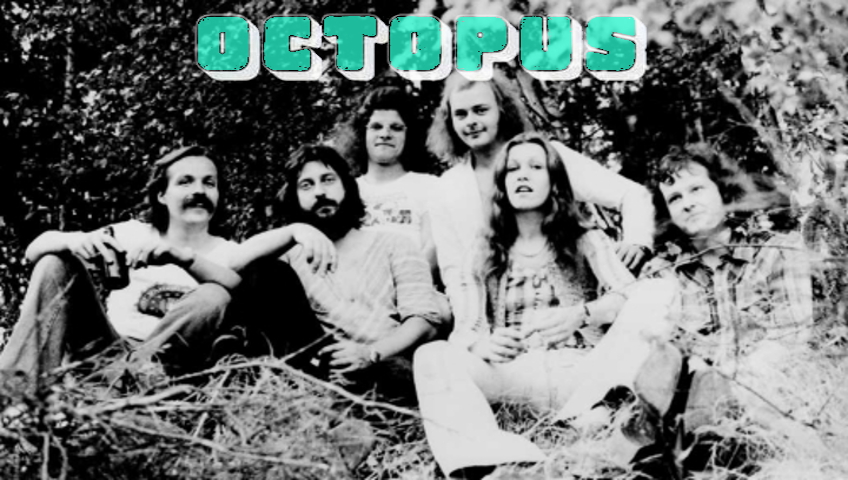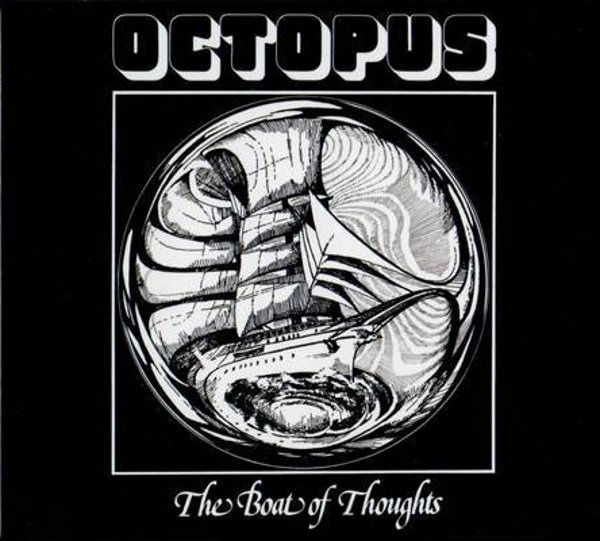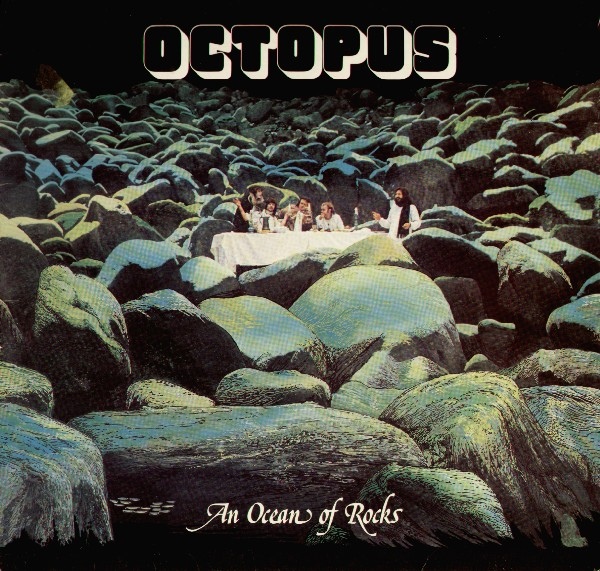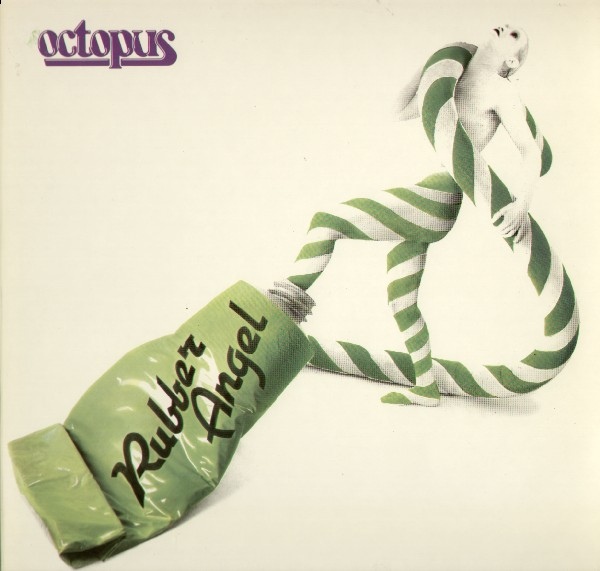
Exposé Online
What's old
Exposé print issues (1993-2011)
- 1 (October 1993)
- 2 (February 1994)
- 3 (May 1994)
- 4 (August 1994)
- 5 (October 1994)
- 6 (March 1995)
- 7 (July 1995)
- 8 (November 1995)
- 9 (March 1996)
- 10 (August 1996)
- 11 (February 1997)
- 12 (May 1997)
- 13 (October 1997)
- 14 (February 1998)
- 15 (July 1998)
- 16 (January 1999)
- 17 (April 1999)
- 18 (November 1999)
- 19 (May 2000)
- 20 (October 2000)
- 21 (March 2001)
- 22 (July 2001)
- 23 (December 2001)
- 24 (April 2002)
- 25 (September 2002)
- 26 (February 2003)
- 27 (August 2003)
- 28 (December 2003)
- 29 (April 2004)
- 30 (September 2004)
- 31 (March 2005)
- 32 (September 2005)
- 33 (May 2006)
- 34 (March 2007)
- 35 (January 2008)
- 36 (October 2008)
- 37 (July 2009)
- 38 (July 2010)
- 39 (Summer 2011)
Features
Thoughtful Boats and Rocky Oceans —
A Profile of the German Octopus

Not to be confused with the many other bands of the same name, the German Octopus was perhaps the classic Sky-label band. The band was conceived in Frankfurt, Germany in 1973 by bass player Claus Kniemeyer and guitarist Pit Hensel. Kniemeyer was playing in American G.I. clubs with a commercial rock band at the time. However, he had a desire to make a more heavily conceptual music. Upon meeting like-minded Pit Hensel, who had previously been playing jazz, Octopus was born. With powerful singer Jennifer Hensel (no relation, apparently), organist Werner Littau, and drummer Dieter Becke, they made their live debut in February 1974 at the Fachoberschule Frankfurt.
by Mike Ohman, Published 1996-08-01
1975 saw the band embarking on a summer tour of Germany, with an astounding sixty or so performances. This led to their first time in a recording studio, with the intent to record their first album. This was unfortunately cut short prematurely, as the studio time financially broke the band's producer. To raise funds for their recording debut, the group went back on the road for a further 60 concert dates in early 1976. This grueling schedule apparently proved too stressful for drummer Dieter Becke, and he quit the band. His replacement was the talented Frank Eule.
 Once again, Octopus found themselves in the studio (Tonstudio Hiltpoltstein), this time starting from scratch and financing their recording themselves. At last striking a deal with Sky Records, their recording debut, entitled The Boat of Thoughts (Sky 009), was at last released late in 1976. Showing surprising maturity for a recording debut, The Boat of Thoughts gracefully mated heavy rock with lush symphonics. The interplay between guitarist Pit Hensel – whose style had become ever more rock based, and keyboardist Werner Littau – whose athletic Hammond organ playing was enhanced by innovative use of Mellotron, Moog synthesizer and string-ensemble, was the band's instrumental focal point. The powerhouse bass playing of Kniemeyer, and especially Eule's non-stop riffing at the drum kit, give the rhythm section an undeniable strength. It's all topped off by the indescribable deep contralto belting of vocalist Jennifer Hensel, whose low-pitched voice defies comparison, yet is very strong and excellent. The band as a unit show remarkable resolve over such rhythmically complex pieces as "First Flight of the Owl," "We're Losing Touch," and the feature-length title track. As symphonic and conceptual as they can often be, Octopus never let you forget they are a rock band. Thanks to that tendency, The Boat of Thoughts stands today as a classic in German progressive.
Once again, Octopus found themselves in the studio (Tonstudio Hiltpoltstein), this time starting from scratch and financing their recording themselves. At last striking a deal with Sky Records, their recording debut, entitled The Boat of Thoughts (Sky 009), was at last released late in 1976. Showing surprising maturity for a recording debut, The Boat of Thoughts gracefully mated heavy rock with lush symphonics. The interplay between guitarist Pit Hensel – whose style had become ever more rock based, and keyboardist Werner Littau – whose athletic Hammond organ playing was enhanced by innovative use of Mellotron, Moog synthesizer and string-ensemble, was the band's instrumental focal point. The powerhouse bass playing of Kniemeyer, and especially Eule's non-stop riffing at the drum kit, give the rhythm section an undeniable strength. It's all topped off by the indescribable deep contralto belting of vocalist Jennifer Hensel, whose low-pitched voice defies comparison, yet is very strong and excellent. The band as a unit show remarkable resolve over such rhythmically complex pieces as "First Flight of the Owl," "We're Losing Touch," and the feature-length title track. As symphonic and conceptual as they can often be, Octopus never let you forget they are a rock band. Thanks to that tendency, The Boat of Thoughts stands today as a classic in German progressive.

In December of 1977, Octopus returned to the studio with another new drummer (Seppl Niemeyer, who had replaced Eule in October of that year) to record their second album, entitled An Ocean of Rocks. In spite of the lineup shift, no major change in style had occurred from one album to the next, the memorable dialogs between Pit Hensel's guitar and Littau's keyboards still being central to the band's music. This album is their most conceptual of all, not only including a sequel to the first album's "The Delayable Rise of Glib" (about a young boy dealing with abject poverty), but also an entire suite of songs based on the mythology of Atlantis. Littau's instrumental "The Shifting of Space and Time" is a high point, a real showcase for his keyboard playing.

Guitarist Pit Hensel quit the band in August of 1978, citing personal and musical differences. His replacement was Düsseldorf-based guitarist Winfried Kowallik, who had played with both Straight Shooter and Streetmark. Their sound started moving away from the conceptual progressive stuff and toward a more linear, hard-rock orientated sound. But for the recording of their third album, Rubber Angel, in the spring of 1979, they recruited producer Jochen Wenke. He cast the band into a more pop-disco type of sound, similar to that of another band he produced, Supermax, a setting in which they sounded most uncomfortable. Only the mellow, pensive "Roly-Poly Bumble-Bee" even hints at a progressive sound.
As of this writing none of the Octopus albums have been reissued on CD, but fortunately this will be remedied soon. With their first two albums, Octopus quite possibly represented the apex of the mid-70s German progressive scene. These albums beg to be rediscovered.
Filed under: Profiles, Issue 10
Related artist(s): Octopus
What's new
These are the most recent changes made to artists, releases, and articles.
- Review: LeoNero - Monitor
Published 2026-03-04 - Review: Sterbus - Black and Gold
Published 2026-03-03 - Release: Janel Leppin's Ensemble Volcanic Ash - Pluto in Aquarius
Updated 2026-03-02 15:06:51 - Release: Janel Leppin - Slowly Melting
Updated 2026-03-02 15:05:27 - Release: Alister Spence - Always Ever
Updated 2026-03-02 15:04:11 - Release: Let Spin - I Am Alien
Updated 2026-03-02 15:02:41 - Review: Falter Bramnk - Vinyland Odyssee
Published 2026-03-02 - Review: Exit - Dove Va la Tua Strada?
Published 2026-03-01 - Review: Steve Tibbetts - Close
Published 2026-02-28 - Release: We Stood Like Kings - Pinocchio
Updated 2026-02-27 19:24:02 - Release: Stephen Grew - Pianoply
Updated 2026-02-27 19:20:11 - Release: Thierry Zaboitzeff - Artefacts
Updated 2026-02-27 00:16:46 - Review: Kevin Kastning - Codex I & Codex II
Published 2026-02-27 - Release: Zan Zone - The Rock Is Still Rollin'
Updated 2026-02-26 23:26:09 - Release: The Leemoo Gang - A Family Business
Updated 2026-02-26 23:07:29 - Release: Ciolkowska - Bomba Nastoyashchego
Updated 2026-02-26 13:08:55 - Review: Immensity Crumb - Chamber Music for Sleeping Giants
Published 2026-02-26 - Release: The Gatekeepers - Diary of a Teenage Prophet
Updated 2026-02-25 15:55:58 - Review: Mars Lasar - Grand Canyon
Published 2026-02-25
